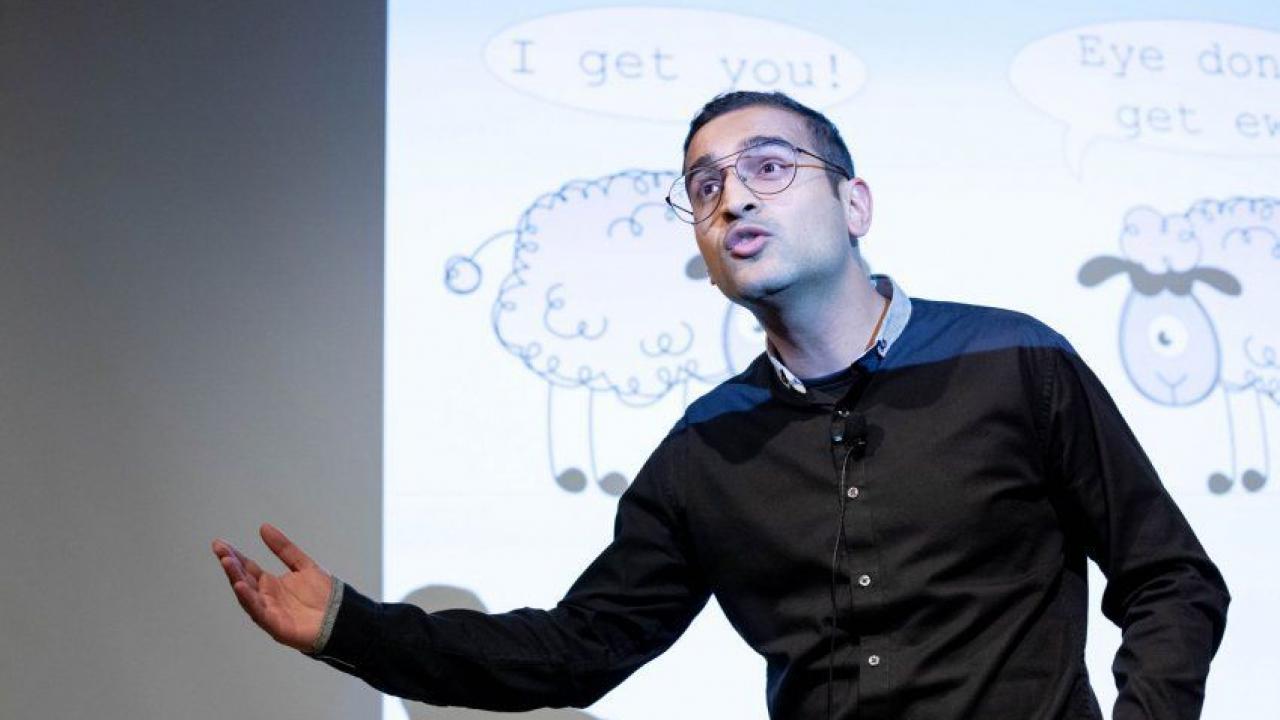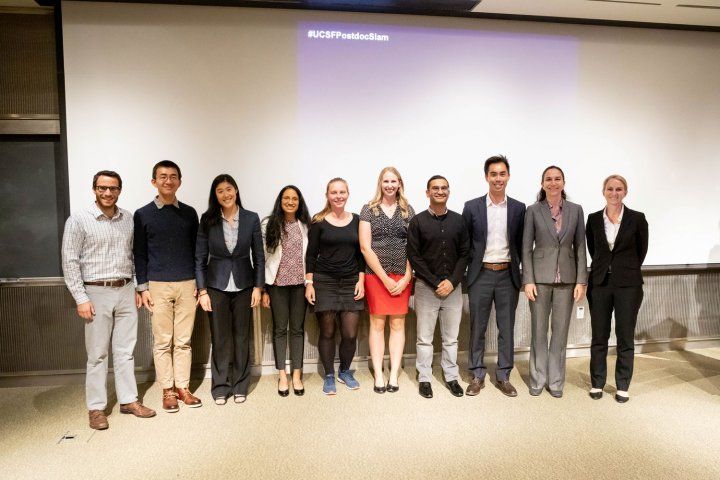
Ishan Deshpande, PhD, delivering his first-place talk at the 2019 UCSF Postdoc Slam. Photo by Susan Merrell
In the mountains of Idaho, decades ago, one-eyed sheep were being born. On Thursday evening, UC San Francisco postdoc Ishan Deshpande, PhD, explained how this strange phenomenon has opened a unique path toward better cancer treatments.
“It turns out that the sheep were eating flowers loaded with a dangerous chemical called cyclopamine,” said Deshpande in his talk, “From One-Eyed Sheep to Anti-Cancer Drugs,” which earned him first prize in this year’s Postdoc Slam competition. The aptly-named chemical affects the activity of a protein called smoothened, “a fascinating molecular machine present in all animals,” said Desphande. The protein is normally active during fetal development, making sure the animal’s body has the right architecture, but when activated in an adult, smoothened can cause cells to divide inappropriately – and lead to cancer – Deshpande explained to the packed house in Genentech Hall’s Byers auditorium.

Deshpande was one of 10 finalists competing live, winnowed from an initial field of 24 submissions. Now in its fourth year, Postdoc Slam is organized and hosted by the Office for Postdoctoral Scholars, part of the UCSF Graduate Division. This year’s topics ranged from cancer to the immune system to the potential for performing surgery in space. Each participant had risen to meet a formidable challenge: Present your research, no matter how complicated, in a way a non-specialist can understand. And do it in three minutes or less.
In his research, Deshpande has discovered the “activation epicenter” for the protein, and learned that it becomes activated by cholesterol. “Current drugs on the market, developed without this knowledge, block this activation epicenter, but only partially,” he said. “Essentially, we’re hitting at a piñata, but blindfolded.” Understanding the protein’s activity, he said, will allow researchers to design smarter drugs that can precisely target that piñata.